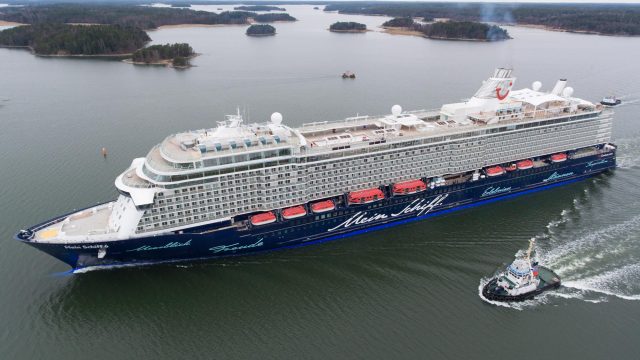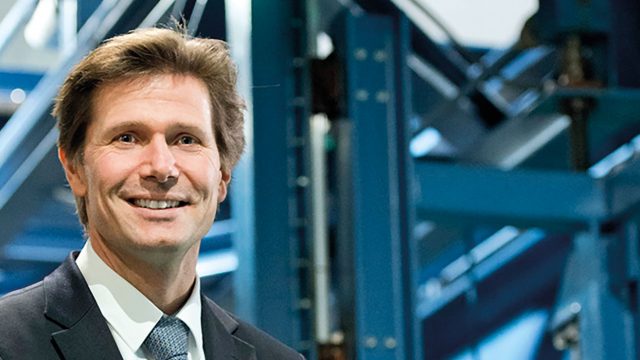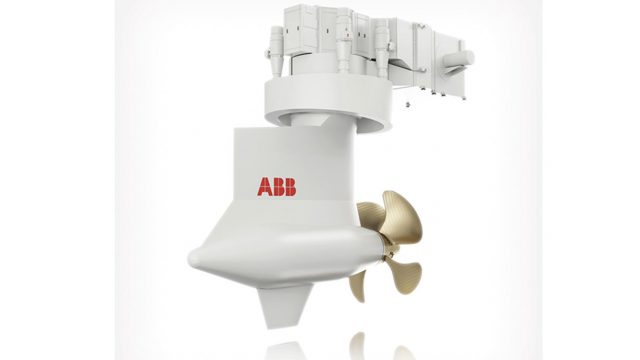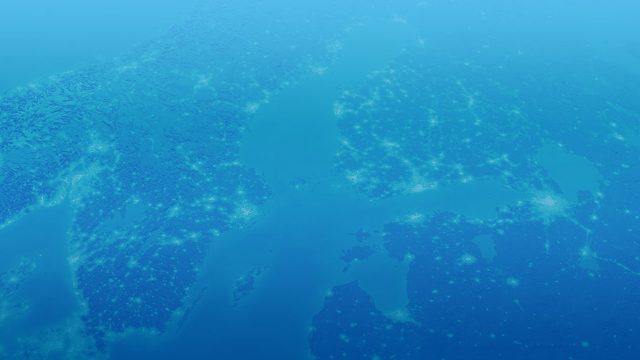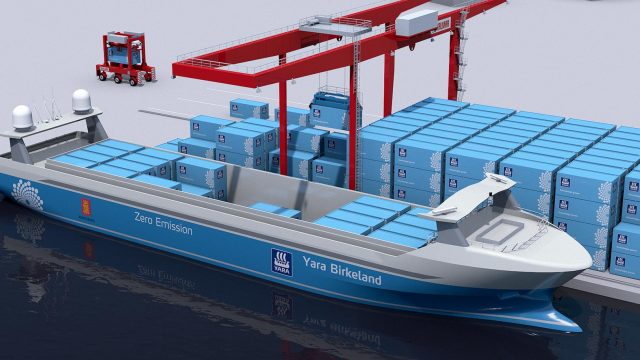The seminar, organized by the Finnish Ship Owners Association, the Finnish Port Association, the Finnish Port Operators Association, Finnish Marine Industries and the City of Helsinki, brought about 250 people to the Messukeskus Convention Center to hear the latest news from the industry, analysis of future challenges and potential solutions.
The attendees included from businesspeople, civil servants, researchers, students and startup entrepreneurs.
The event actually began on the previous day with a think tank session for invited guests.
“Our discussion was open and forward-looking, and the attendees were particularly pleased to be involved in debates across sectorial boundaries,” says Tiina Tuurnala, Managing Directors of the Finnish Ship Owners Association.

Consensus
The think tank’s ideas were presented to the seminar audience on Tuesday by Magda Kopczynska, a Director from the European Commission; Martin Dorsman, Secretary General of the ECSA; Jens Meier, Chairman of the Hamburg Port Authority; and Jaakko Eskola, President and CEO of Wärtsilä. They came to a consensus on the think tank’s objective: Things must change, and quickly.
But what can be done to effect change? That was a more contentious issue.
“The industry requires young new entrants who see things from different perspectives,” Eskola said.
Meier agreed, but he also highlighted the importance of experimentation.
“We need to experiment more boldly and not be afraid to fail more quickly than we do now,” he said. “The Americans are ahead of us in this area.”
Dorsman called upon the EU to stimulate innovation in the industry. He considered it necessary for the public sector to provide more support for investment.
Kopczynska reminded the audience of the upcoming EU elections and the fact that the EU will have a new parliament and commission in less than one year. These bodies will be responsible for financing decisions in forthcoming years. She also emphasized that a lot depends on the maritime industry itself.
“In my opinion, there is often too much focus on the negatives – where does that come from? It would be better to think that we have the expertise and knowledge in Europe to take these matters in hand,” she said. “Therefore, the maritime cluster holds the keys to the solution.”
“Optimizing operations in the logistics sector is the next major challenge facing the European Commission as the environment is changing rapidly. This raises questions of regulation as well as funding. First, we must analyze what is required, and then we must create a common European solution.”
The think tank’s work also gave rise to proposals for tangible steps forward.
“One necessary reform is to open up the data used in different sectors for everyone to use. At present, the data collected by different sectors is underused and it is not shared between companies or organizations enough,” Eskola said.
“In addition we need to expand the terms of debate to include parties outside the sec- tor, as well as entities that are substantially incorporated into our ecosystem.”
Added Meier, “In this respect, we could take a cue from the aviation sector, where data is shared and exchanged very efficiently. This prob- lem would be fairly easy to solve.”
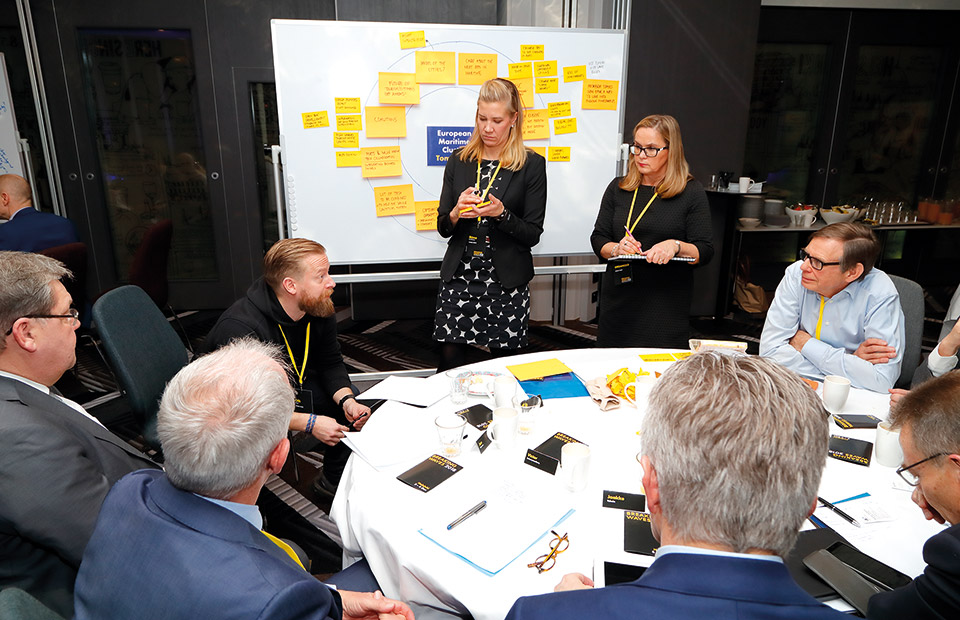
Flashes from the future
During the afternoon, Finnish and European companies and organizations presented the latest advancements to the audience. The most rapturous applause was reserved for Finferries and Rolls-Royce, who demonstrated the world’s first autonomous ferry trip and presented the related SVAN project on the previous day.
The historic autonomous voyage combined autonomous passage through the fairway, guided by a computer with a captain remotely controlling the vessel from terra firma.
Despite the hugely successful maiden voyage, Iiro Lindborg and Oskar Levander from Rolls-Royce predicted that autonomous vessels and remote control will only become widespread in international waters midway through the next decade.
“We expect the IMO to issue guidelines related to automatic control in 2025 or thereabouts. However, the success of our project and the tangible demonstration of its functionality will apply some pressure to this, so it may be possible to get things in motion,” they stated.
The Maritime Accelerator 2018 project also sought new ideas for addressing the various challenges facing the maritime cluster. To round the day off, the collaboration network set up by Turku Business Region and Avanto Ventures for startups presented its three best ideas.
Of these, a thermal-imaging model developed with Wärtsilä is only just progressing to the practical-testing phase, while Meyer Turku is already using POINTR, a supervision- and monitoring-system provided by Delta Cygna Labs. Vital Vio is launching an application of its antibacterial lights for cruise ships, with testing carried out on Royal Caribbean Cruises’ Harmony.
Appreciation from the participants
The organizers were satisfied with the feedback they received on the event.
“The conference was a success and the speeches provided plenty of information on the future challenges facing the maritime cluster. It was great to see how Finland is pioneering environmental innovations, digitalization and automation in the maritime industry,” says Tiina Tuurnala, Managing Director of Finnish Ship Owners Association.
“We have clearly succeeded in creating an atmosphere conducive to collaboration, interaction and opinion-sharing,” says Annaleena Mäkilä, Managing Director of Ports of Finland.
She said there are plans to continue the event this year.




